Prospective Students
MD, FMAT and Dual Degree Programs
The School of Medicine provides multiple avenues for obtaining a degree in medicine. These include the standard 4-Year MD Program, the Family Medicine Advanced Track (3-Year Program), and various dual degree programs.
For curriculum images of previous classes, please click here. This page is secure and requires eRaider to view.
Click on the + button below to learn more about MD, FMAT and Dual Degree Programs.
The standard 4-year medical school program culminates in an M.D. degree. This program will prepare participants for a career in the specialty of their choosing.
Phase 1, the Basic Science curriculum, is in Lubbock and is the building block for students prior to their clinical experiences.
Phases 2 and 3, the Clinical Science curriculum, can be in Amarillo, Covenant, Lubbock
or Odessa.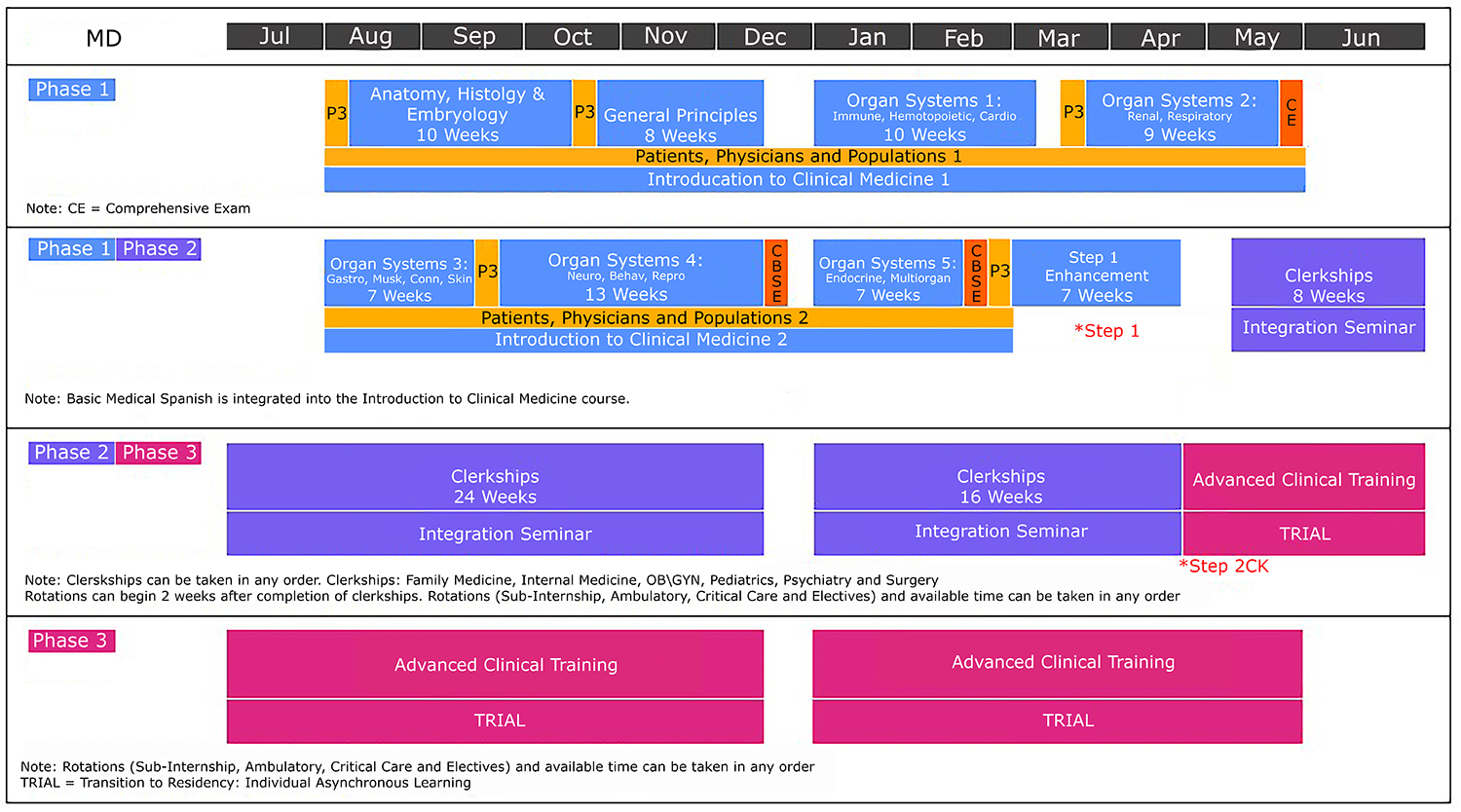
Click on the image above to enlarge.
View our Curriculum Overview here.
The Family Medicine Accelerated Track, or FMAT, is an innovative 3-year accelerated medical school curriculum that culminates in the M.D. degree.
It will prepare participants for a standard 3-year family medicine curriculum at one of three Texas Tech programs, in Lubbock, Amarillo, or Odessa.
Ten students will be chosen from each TTUHSC School of Medicine first year class and will be notified of their selection early in the second semester of first year. Preference will be given to students with expressed interest in Primary Care/Family Medicine, academic performance (including grades from fall semester of year 1 placing the student in the top 50% of the class), as well as interviews with members of the FMAT faculty.
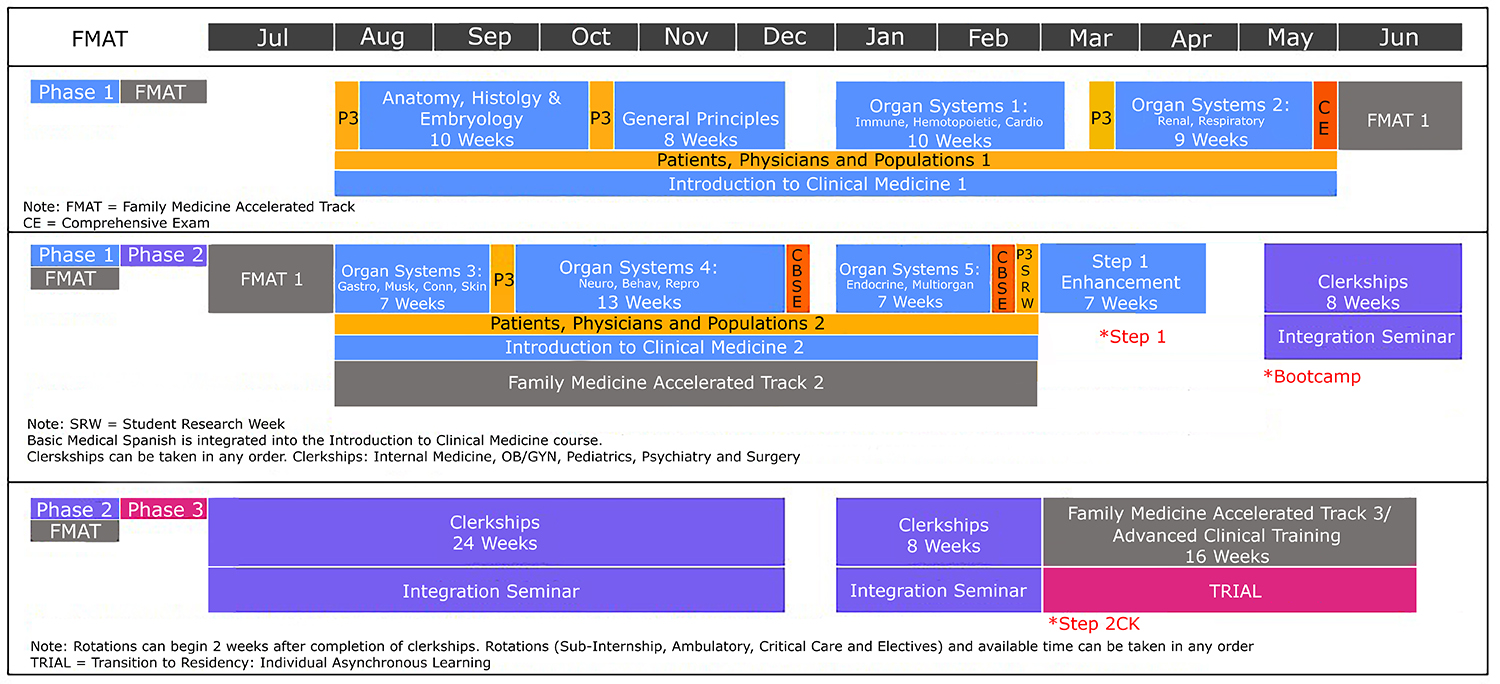
Click on the image above to enlarge.
To find out more, click here.
The Health Organization Management (HOM) joint degree program allows students to earn both MD and MBA degrees within the four years of medical school.
Enrolled students complete 42 hours of coursework at Texas Tech University Rawls College of Business, 6 of which is completed in the school of medicine.
Areas of study include accounting, management strategy, business decision-making skills and methods, business information systems, as well as other core skills in the business curriculum.
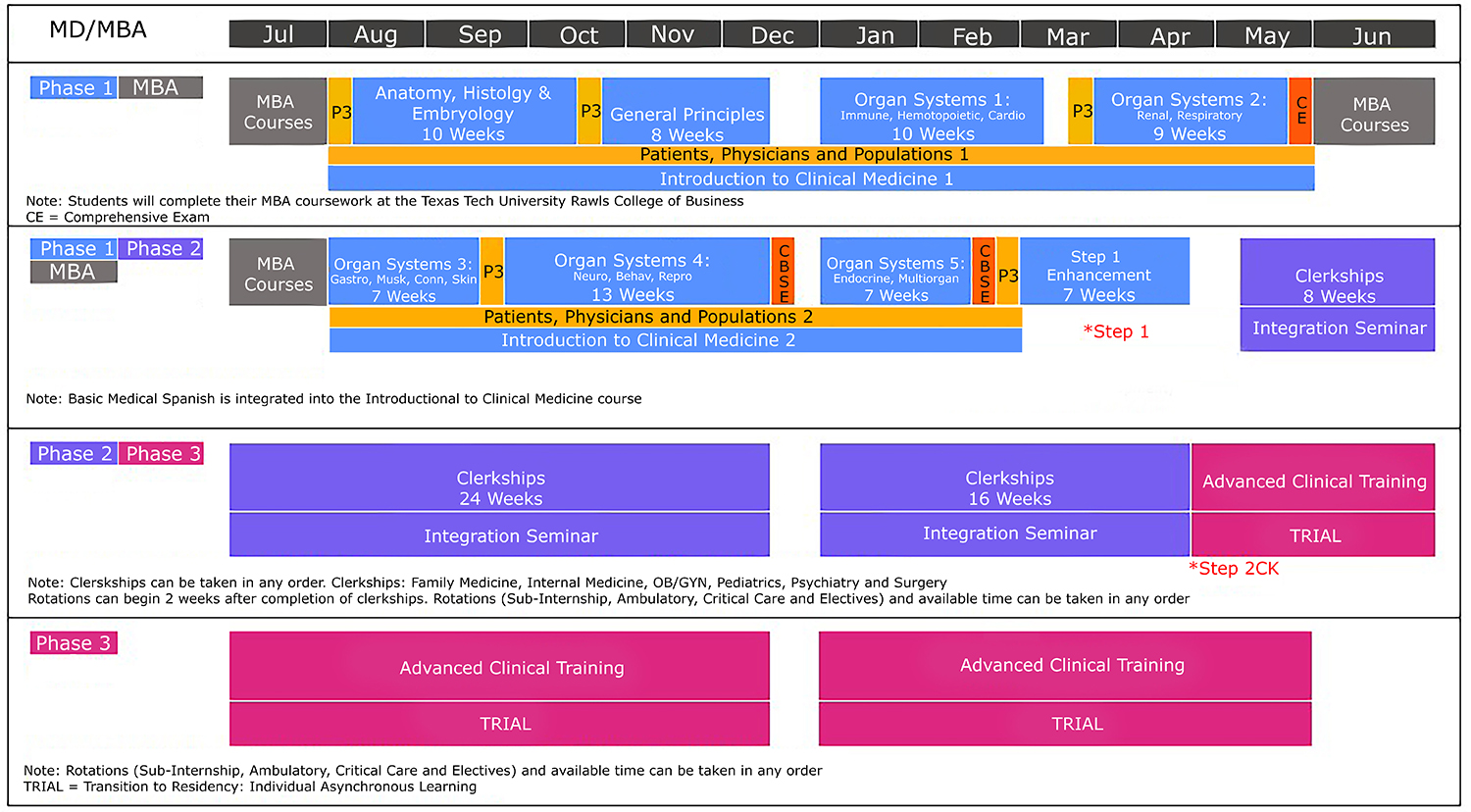
Click on the image above to enlarge.
To find out more, click here.
The MD/MPH emphasizes the knowledge and skills of core public health disciplines and public health practice.
A Master in Public Health can be earned by completing a minimum of 45 credit hours, including a practicum experience and a culminating experience.
At this time, the MPH program offers a generalist MPH degree.
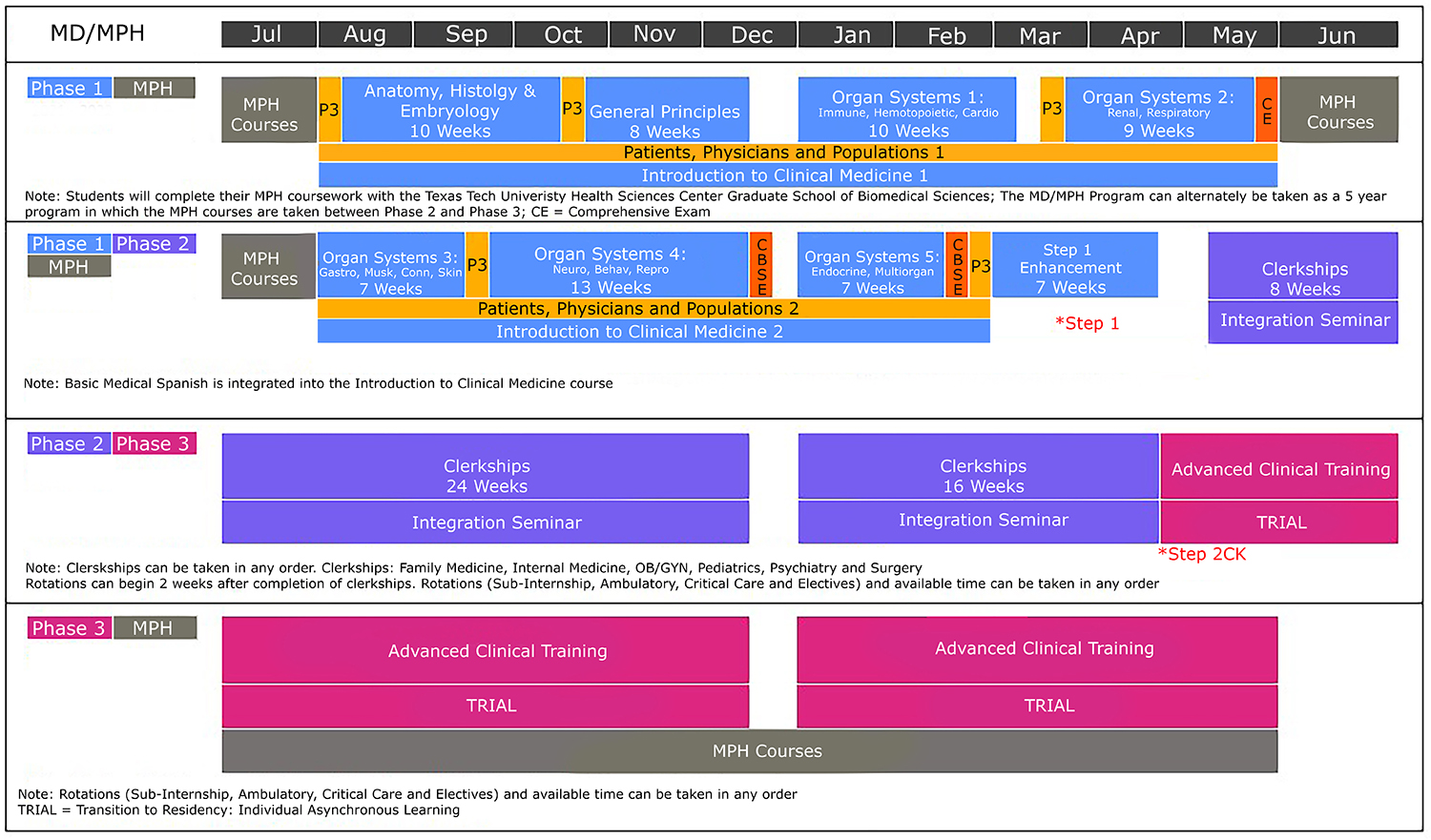
Click on the image above to enlarge.
Find out more here.
If you are interested in a career in academic medicine as a physician scientist, this program may be ideal for you.
It will prepare you to become a medical practitioner and faculty member at a university medical center where you will teach medical and graduate students, and, as a scientist, will be involved with biomedical research.
After completion of the program, you will receive both the M.D. and Ph.D. degrees.
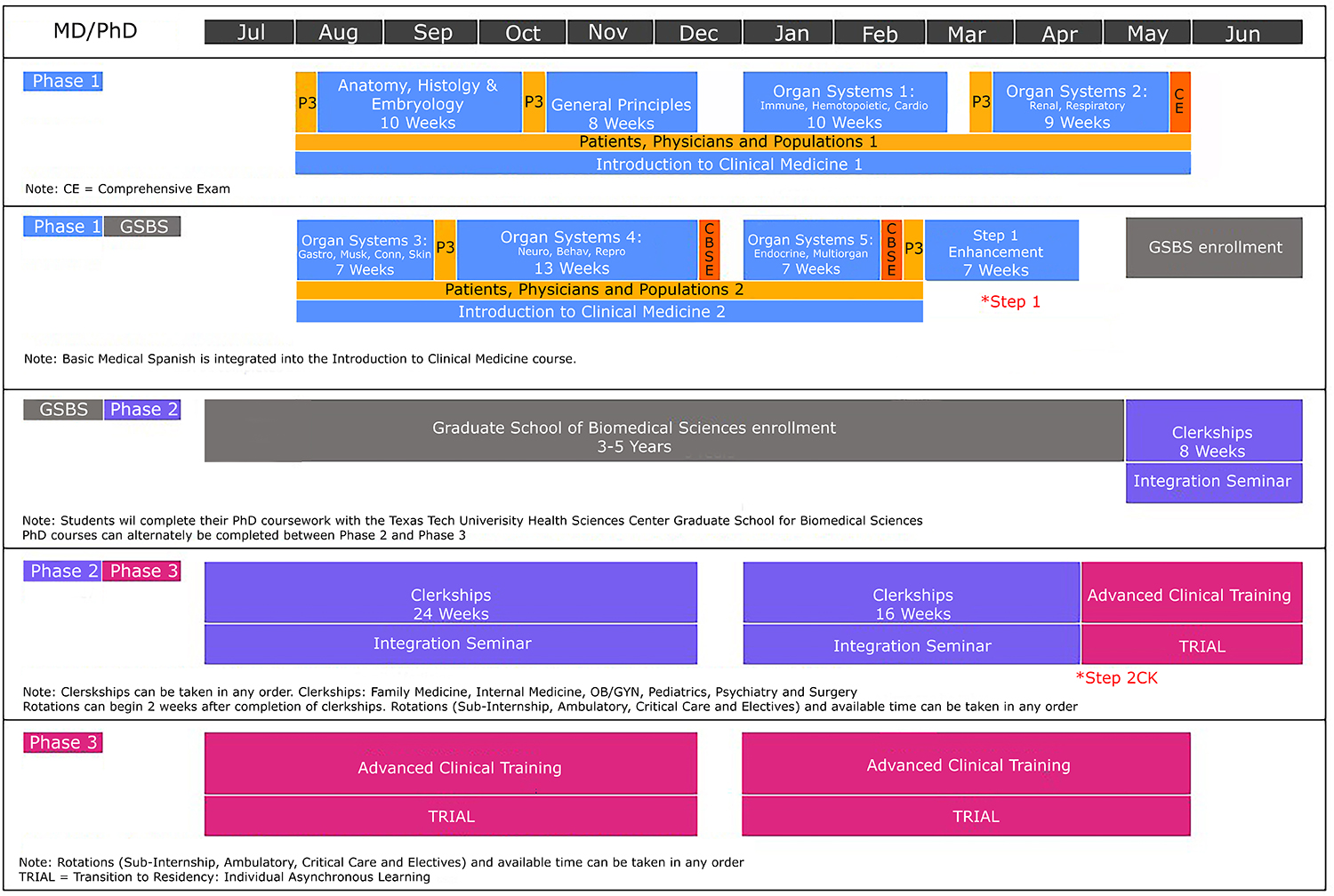
Click on the image above to enlarge.
Find out more here.
The MD/JD program is a six-year program designed specifically for individuals interested in the areas of health law, health care policy, bioterrorism, forensics or biomedical compliance.
The dual degree program of study is administered by the Texas Tech University Health Sciences Center School of Medicine and Texas Tech University School of Law.
Students complete 78 hours of coursework in the School of Law between the third and fourth years of the MD program.
Applicants interested in this program must apply separately to the School of Law and the School of Medicine in the same admissions cycle, satisfying the application requirements of each program.
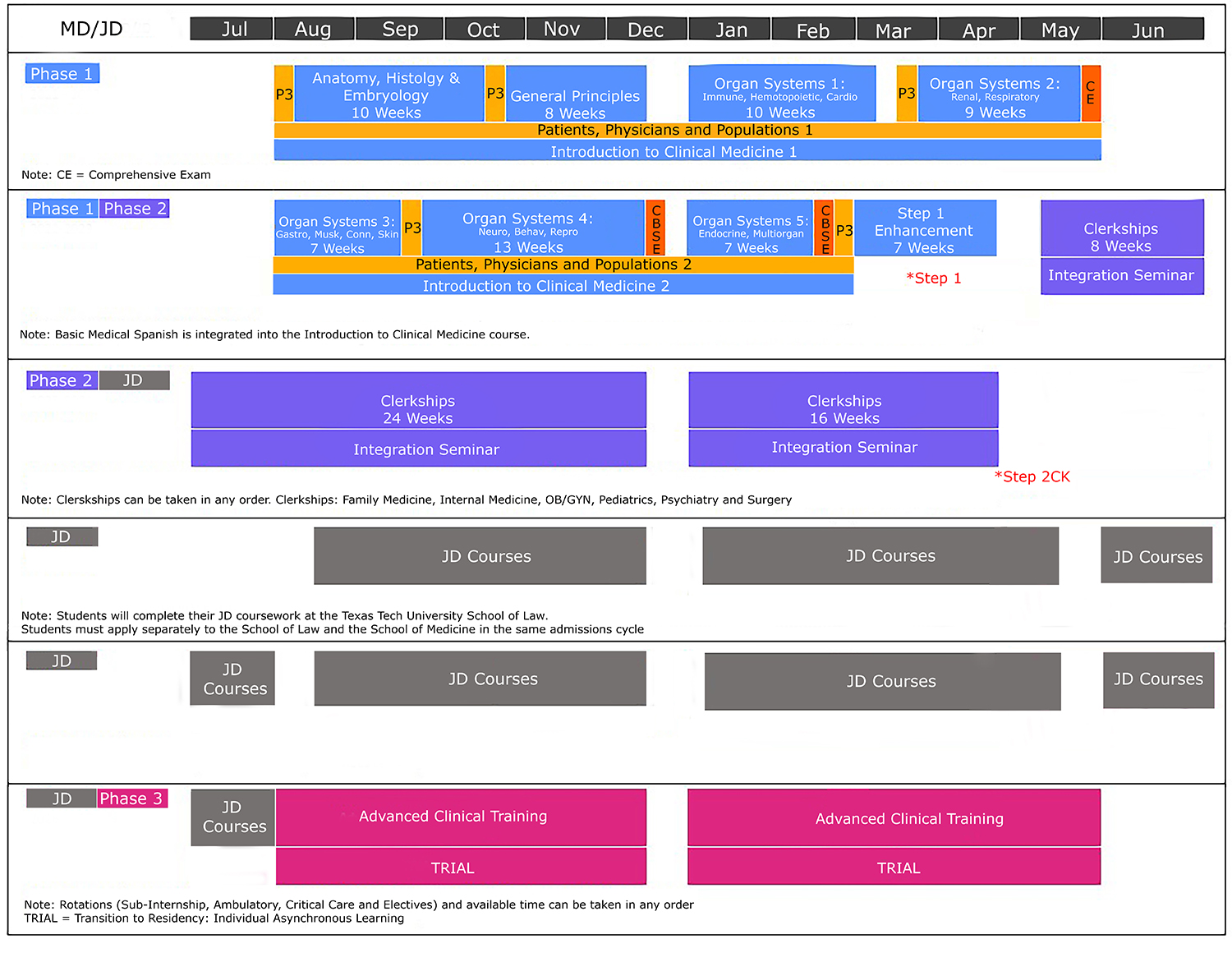
Click on the image above to enlarge.
Find out more here.
Through this unique partnership our goal is to realize the impact of engineering on medicine in the same way we have seen it influence the technology sector, such as space exploration. It represents a new leap forward to train the next generation of clinical and engineering visionaries as they advance health care.
Students will take 12 hours of required coursework in the M.S. in Bioengineering degree program and 12 hours of elective MSBIOE coursework; 6 hours will focus on research. Thesis students take 4 additional graduate courses that meet with the advisor's approval. Students are encouraged to explore courses outside their specific backgrounds.
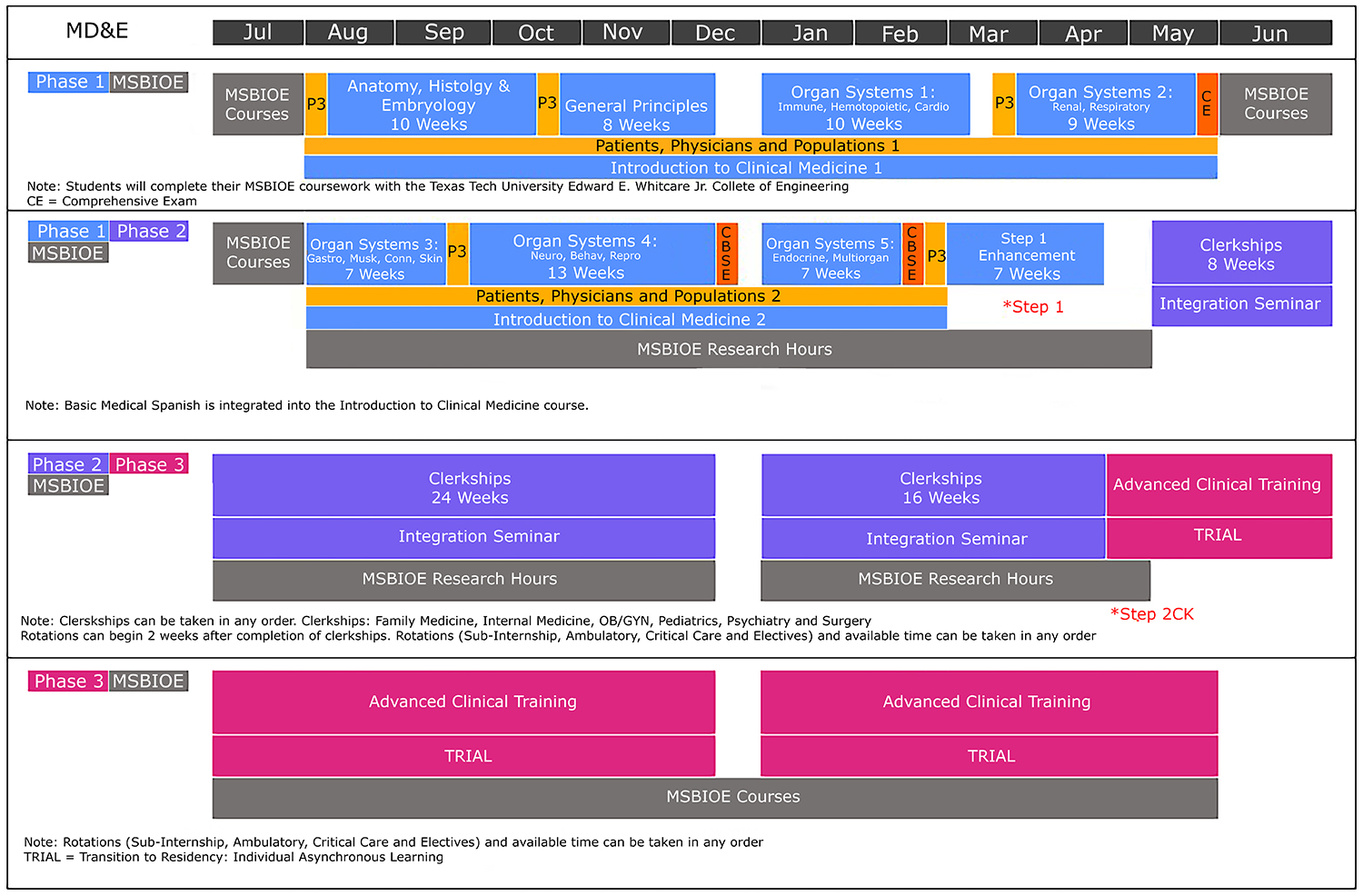
Click on the image above to enlarge.
Find out more here.
Certificate, Distinction and Elective Programs
This is a fast-moving area and it is necessary that we create clear policies about
how to describe
these three related programs within the SOM curriculum. All are considered to be elective
in
that they are not part of the core curriculum.
Click on the + button below to learn more about Elective, Distinction and Certificate Programs.
Elective courses in the Phase 1 curriculum generally conform to the
following structural requirements:
- 10-15 hours of contact time
- Zero credit course that appear on the transcript
- No extra cost
- Limitations of participant number
- Directed by faculty/student teams
- Completion expectations comprise of items such as participation in a set percentage of session, completion of a short project or other course-specific expectations
- Graded as Pass/Fail but no-one fails as anyone who does not complete an elective course is dropped and the course does not appear on their transcript
To learn more about available electives click here.
Distinctions are areas of focused study and experience with components occurring throughout the three phases of the curriculum. Each distinction program should include (at a minimum):
- a component in phase 1 (one existing or new elective)
- a component in phase 3 (one elective)
- a longitudinal component occurring throughout all three phases of the curriculum.
- Students should generate a product of some kind during the course of the program (Capstone).
Click on the tab(s) below to learn about the certificate programs that are available.
The Distinction in Medical Research (DMR) program is designed to provide medical students a structured medical research experience. An experience in which the student not only plans, conducts, and presents a cutting-edge medical research project, but is instructed in research method development, research management, and other critical skills.
To learn more about this opportunity click here.
Certificate programs must meet the general definition of a certificate program as one that encompasses the equivalent of 15 credit hours of course time. Formal approval of certificate programs will require input from the TTUHSC Office of the Provost and the Texas Higher Education Coordinating Board.
Click on the tab(s) below to learn about the certificate programs that are available.
This program offers students the opportunity to enrich their medical education through participation in elective courses, lecture series, volunteer opportunities, writing workshops, and directed research programs. This program encompasses all four years of medical school.
To learn more about this opportunity, click here.

